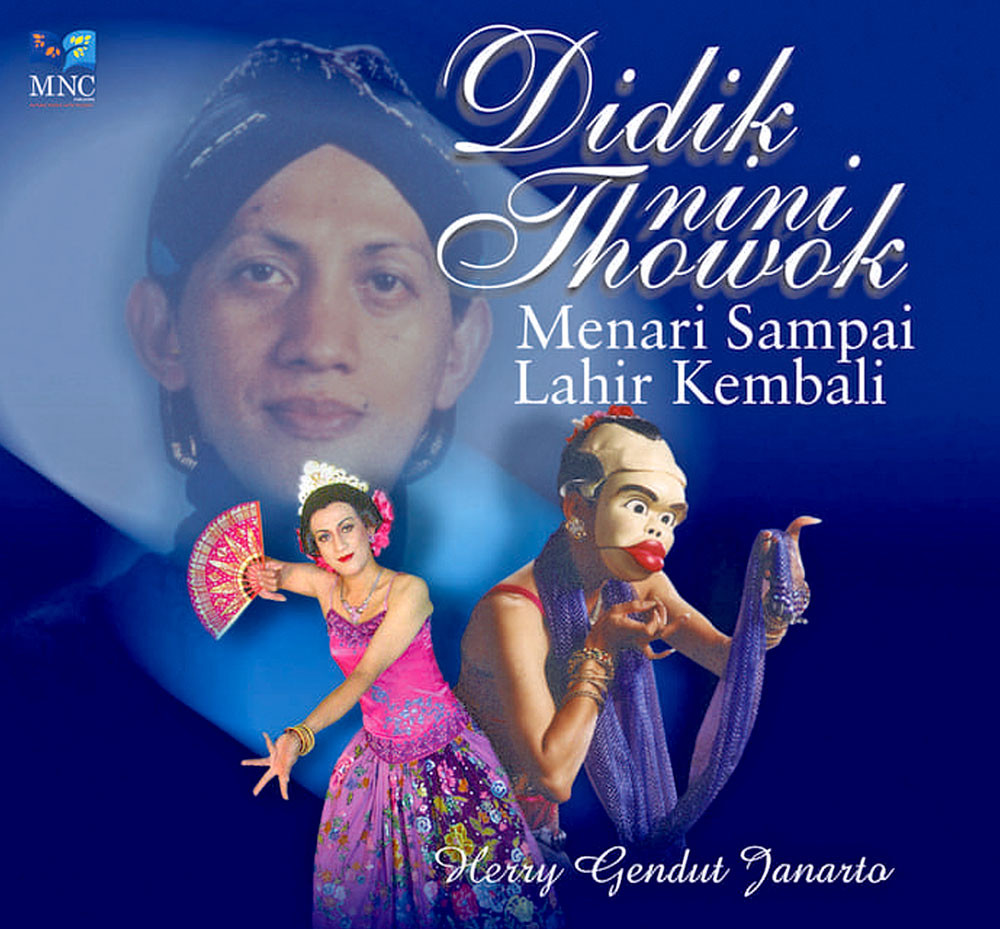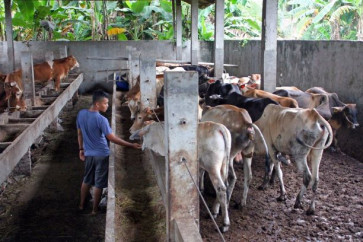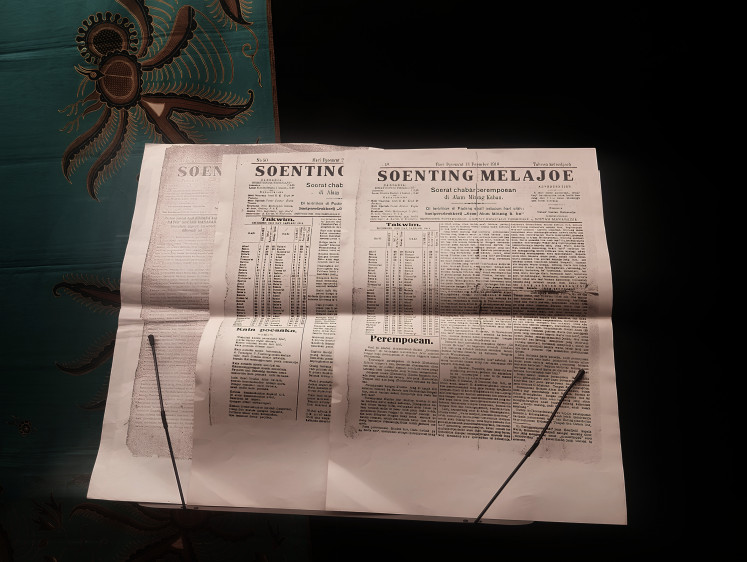Didik Nini Thowok, the dance maestro
Change text size
Gift Premium Articles
to Anyone
 Didik Nini Thowok, the Dance Maestro (Courtesy of Sava Media/-)
Didik Nini Thowok, the Dance Maestro (Courtesy of Sava Media/-)
F
ormer journalist Herry Gendut Janarto showcases a very fluid writing style in the biography that tells the story of Indonesia’s dance maestro Didik Nini Thowok.
The book, titled Didik Nini Thowok, Menari Sampai Lahir Kembali (Didik Nini Thowok, Dancing Until Reborn), tells many interesting stories of how Didik, who was born Kwee Tjoen Lian in Temanggung, Central Java, on Nov. 13, 1954, found his passion for dancing and developed his own unique persona as a gender bending dancer.
In the first chapters, Herry shows readers insights into Didik’s childhood, during which his mother often took him to watch the dancing and singing in Indian films and various traditional Javanese performing arts, such as ketoprak, ludruk and wayang orang (human puppet show). What Didik’s mother did increasingly captivated him in the world of dance and performing arts.
The turning point of Didik’s dance journey was when he saw the performance of the Tutiek Bintang Timoer group. Here, Didik watched how a man like Tutiek beautifully captured the elegance of a woman’s body movements as he performed as a female character.
Ever since Didik’s encounter with Tutiek, he wanted to be able to do the thing that he found to be stranger but weirdly beautiful and that was to dance gracefully as a woman character.
Menari then took its readers to Didik’s teenage years, during which he eventually joined a dance group and found his first teacher by the name of Sumiyati, who taught classical Surakarta style. It was during this time that Didik performed for the first time in front of a live audience. He also expanded his dance repertoire by studying Balinese style dances under mentors such as Sumiasih, Sugiyanto, Prapto Prasodjo and A.M. Soedihardjo.
Didik first had a glance of fame when he became a local dance sensation upon graduating from Yogyakarta’s Indonesian Dance Academy.
At this point, Didik cemented himself as a hilarious and flirtatious dancer. A character of a dance routine created by his lecturer, Bekti Budi Hastuti, was offered exclusively to him.
Didik also received his stage surname “Ninik Thowok” shortly after graduation. Ninik Thowok was a character often played by the daughters, concubine or wife of the Yogyakarta Keraton Palace sultan during the time of Pakubuwono VI.
Set in the 1980s, the book tells of how Didik expanded his repertoire as an artist by collaborating with artists from other disciplines, such as when he became the choreographer for poet and playwright WS Rendra’s play called Oedipus Rex staged in Jakarta in 1987.
Didik also progressed as a dancer by showing his versatility in performing serious characters and performances, far away from his usually playful and flirtatious style. For example, in a performance called Reincarnation in 1994, Didik showcased his more serious side as he tried to escape the general perception of him only being a humorous dancer.
The book also stresses that although Didik has mostly spent his career performing as female characters, he still identifies himself as a man and has no interest at all in becoming a woman. This assertion is like closing the story of the world dance journey that he has been engaged in. The dance he loves is in luck and misfortune. Until now.
Menari seems to have bewitched readers into reading page after page to understand the world of dance from Didik’s perspective and experiences.
________________________________________
Didik Nini Thowok, Menari Sampai Lahir Kembali
Author: Herry Gendut Janarto
Publisher: Sava Media, Malang in collaboration with LPK Tari Mulya Lakshita
Print: I, January 2005
Pages: 218
Words: 925









